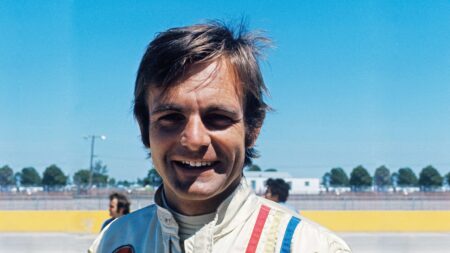
Letters - September 2023
In association with Star letter In F1 Retro, August 2023, page 33, Peter Revson is referred as “the heir to the Revlon cosmetics fortune”. This is a statement repeated during…
SOME NOTES ON ROAD ACCIDENTS AND THE SPORT
We do not propose to set down here our personal opinions of the Hore Belisha Regime, because, serious as are the accident returns that the Minister of Transport now issues monthly, little good can be achieved by poking fun at the Minister as an individual. We can only hope that the bird’s-eye view of English highways which he obtains during his flying lessons may materially assist Mr. Belisha in his quest to reduce the loss of life, and, worse, permanent injury, that road travel entails. ,
We believe that the sports-car driver is usually a safe driver. We have infinite faith in him. But our reputation as keen, fast drivers has afforded us some opportunity of hearing the views of the ordinary road and pavement user, and, unlike the proverbial customer, the motorist is always wrong. So that it behoves those who drive for fun, unharassed by factors which try “the professional” driver, always and untiringly to act discreetly when behind the wheel. Apart altogether from public feeling, we owe that to our fellow citizens. No matter how inspired you may be by special circumstances, never take a risk. The racing driver on the track doesn’t take risks of the kind that bring disaster on the highway. Every driver must know his limitations and he commits a crime every time he surpasses them. That the other fellow does a certain Journey a little faster than you do, corners a bit faster, is a shade more dashing in congested areas either means that he is a bit better as a driver than you are or that he is chancing his arm. As a driver
Your conscience can only remain clear if you continue to drive within your known limitations. modern sports-car is o like a normal car in appear
ance and manner of going that we now get very few dark looks merely as owners of fast vehicles.
If you do drive a noisy specimen, handle it as quietly as you can in town. Throttle flipping to excess only impresses small boys and your fair passenger and it can do the movement a whole heap of harm. Anyway, you can impress your passenger much more thoroughly when the open road is reached. So don’t draw unnecessary attention to your car’s character, especially if wearing competition numbers. We still do not frown on trying for high average speeds. To try and cover a good mileage each hour we confess affords us much pleasure and we quote such achievements at times in our road-test reports. But only when driving modern cars in thoroughly sound order—and observing all danger points—marked and unmarked—is essentially part of the game. That is one good result of the publication of accident returns. It has made us all so accident conscious. No longer do sane enthusiasts talk lightly of risks incurred and accidents avoided by a hair’s breadth. Time was when we did lots of dangerous things on an ancient motor cycle. Agitation still simmers on
CONTENTS
Monte Carlo Rally, The 84 Quest for Economic Plying 89
Letters from Readers …. 91 Awards for M.C.C. Exeter Trial 94 Has Racing Ceased to Benefit the Utility
Motorist . 95 Club News 96 ” Annie ” 100 Silence at Last 101
Some Pine Bentleys …. 102 Continental Notes and News 104
Rumblings …. 105 2-litre Frazer-Nash-13.M.W., The 108 •••••••-• •
the question of trials on public roads. The resultant danger is purely imaginary. We have calculated that a very conservative estimate at least 2,500,000 miles have been covered by car competitors in the three M.C.C. classics since their inception, and Mr. ” Jackie ” Masters cannot recall a single fatal accident. Every week-end trials are run over public roads and the results published in the technical papers, and fatalities, or accidents of any sort, could not be easily hushed-up. How often are they recorded ? We cannot be too careful ! W. BODDY